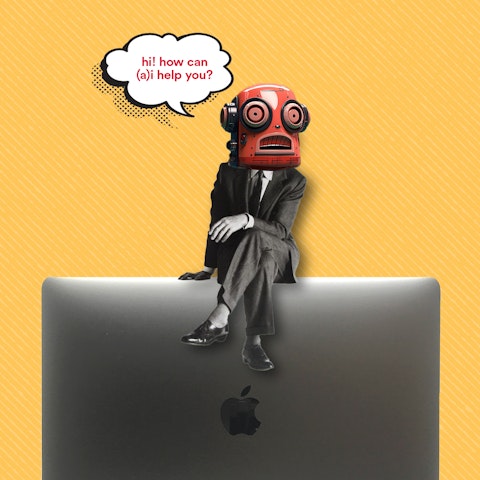If you’ve been online or in a store any time in the past week or two, it’s no secret: toilet paper shelves are empty around the country and the world. Why toilet paper? I believe this seemingly strange response can give us insights into human behavior, as well as guide us to some leadership lessons.
What the Toilet Paper Shortage Can Tell Us About Human Behavior
I walked into a grocery store a couple days ago to observe shoppers (because I often observe shopper behaviors in stores – I know, it’s one of my many strange habits according to my kids). I stopped one lucky shopper who had several rolls of toilet paper in her cart. She said she waited 3.5 hours in the store because she was told “toilet paper was going to be restocked today.”
When I asked why she was buying so much, she said, “Don’t you see that everyone is? It’s all over social media! I wanted to make sure I got mine.”
The interaction with her wasn’t fearful in tone. She was trying to be lighthearted so as not to scare her kids (who were standing right next to her). She also had a case of beans and rice in her cart, so as she left, she pointed to her cart and joked, “With all these beans, I’ll need the toilet paper sooner or later!”
Here in Northwest Ohio, we’re used to seeing shoppers swoop up milk and bread before a snowstorm. It makes sense. Stock up on the essentials now, so you can hunker down until the plows get through. But that’s a relatively common occurrence, and people know what to expect.
The coronavirus is new and uncharted territory. Toilet paper does not offer special protection against the virus. But it does reflect a truth about human nature. When we see images online of panicked buyers clearing out shelves, our reaction is to follow suit. Do they know something we don’t? Will we be able to get more later or will shortages continue? We are experiencing a mass level of uncertainty, and our reaction is to look to those around us for clues on how to behave.
Confusion Breeds Uncertainty
COVID-19 is an extreme uncertainty. It's new, and there's a lot about it that is still unknown. On one hand, we’re told that something dangerous is coming. But on the other, we’re told, don’t panic and just “wash your hands.” The remedy doesn't seem proportionate to the extreme threat we hear all around us. This creates a sense of mass confusion and uncertainty.
When there is uncertainty, people tend to look at others around them to see what they are thinking and how they are responding. There is comfort in behaving similarly in these situations. The sea of sameness makes us feel as if we are on the right track because everyone else is doing it, so it must be correct.
Leadership is More Important Now Than Ever
There are many business learnings to take away from the overall public response to COVID-19, but I will leave that to another blog at another time. Today, whether you are a large corporation or small business, a time like this is when leadership is needed the most.
Help keep your work team calm by providing consistent communication as the situation evolves. Lean towards first keeping your employees safe and allowing people time to take care of their families. Those are the two most important aspects they need to hear from you right now.
Preparation is also the role of the leader. Just like the shopper above, it’s normal in these times to over prepare. Make sure your company has multiple contingency plans. Consider all business and personal aspects that need to be addressed to help your employees get through this.
In times of uncertainty, offer confidence by providing a clear path forward. None of us have all the answers. The important thing is to begin with what you can, communicating it and nuancing it as you learn more. Below are a few suggestions to create a solid plan for these uncertain times.
- Have an office plan: Create a plan and communicate it. Put out new versions of the plan as things develop (e.g. when schools close, describe how will you handle employees with children staying home from school). Have contingencies in place if everyone needs to work from home. (This can be as simple as making sure everyone has a laptop and a charger). Label your versions (V2, V3, etc.) as plans evolve to help employees stay informed and aware that you are continuously on top of things.
- Communicate constantly & transparently: Bring your teams together physically or electronically to talk openly about your plan and answer any questions, especially the tough ones they all are thinking. Things are changing daily, sometimes by the hour, so your communications need to keep up with this pace to ensure clarity and a calm work environment. There is already massive uncertainty about the virus, so don’t let there also be uncertainty about where you as an employer stand on different items related to the virus’s impact.
- Be present: Have your leadership team always be visible and available to answer questions from employees. Be a calm force in your office. Walk around frequently to check in. Be available to talk to individual employees about their personal concerns and questions.
- Have a business plan & contingencies: Make sure you understand the virus’s impact to your business short term and long term – because there definitely will be one. Experts are forecasting a potential negative impact of 10-20% over next 12-18 months. So, work right now to have contingency plans in place if you lose a large percentage of your business for a period of time. While your team will naturally be concerned about their health; they also want to know you have control over the business. Let your team know you have a contingency plan in place and have them help ideate some the details (i.e., new business opportunities, new projects from existing clients, cost reduction opportunities). When employees are informed and involved, they take more ownership in helping get the company through troubling times.
- Be positive: There is enough bad news happening in people’s lives right now. Be the positive influence to give them confidence that we will get through this together. In short, be the leader your team needs you to be and that your company’s overall success requires.
In uncertain times, it’s human nature to look for clues on how to behave. Employees will follow your example to get through this, so you must lead and communicate in order to create assurance and a collective confidence. How you react to this situation will dramatically impact your business’s long term success, and more importantly, your employees’ ultimate trust in you.
So stay safe and please, wash your damn hands.



